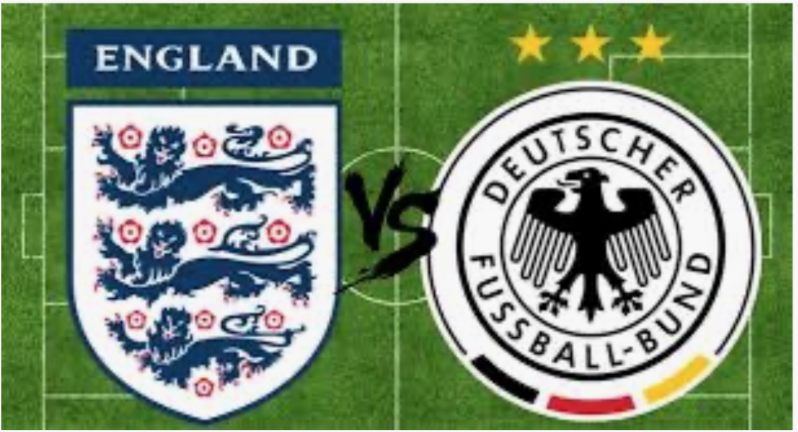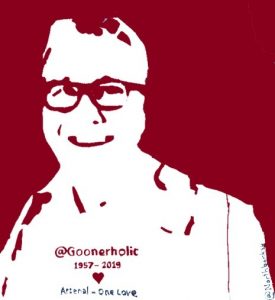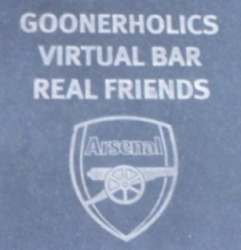
A guilty secret – I have to start by owning up to watching the whole of the Amazon Prime series, All or Nothing, about Tottenham Hotspur. I was, of course, expecting it to be a whole load of Nothing, and given the subject matter and the terms of the series title, it was.
Like everything to do with Jose Mourinho, who was about to enter the fray at the dark end of the Seven Sisters Road, the series was really All about Mourinho. In reality, what else was there to talk about at a club that has a Cheese Room instead of a Trophy Room and whose main current boast seems to be the longest catering counter in the world, next to its own brewery? Mourinho proved himself, once again, to be a miserable, four letter word spewing, dinosaur of a coach, whose most urgent instruction to his players was, when on the pitch, to “be nasty C u next Tuesdays”, (just in case any minors are reading).
Anyway, we all know more than enough about Jose Mourinho. The point is, I had enjoyed a lot of pleasure from watching more acrimony, chucking under the bus and ultimate failure at the Totts, and was drawn to another Amazon football series, this time featuring Borussia Dortmund, which I began watching straight away.
The difference was immediate and stark. The Head Coach of Borussia Dortmund is a man called Lucien Favre – an apparently quietly spoken, intelligent man who seems to foster a trusting relationship with his players, rather than the snide suspicion engendered by Mourinho. The atmosphere in the changing room seemed to be one of friendliness, the players looked relaxed and smiled and laughed a lot amongst one another and the staff.
In contrast, the Tottenham dressing room was quiet, glances were cast sideways, blame was directed from one to another, just as it is always Mourinho’s way to point the finger at someone for every failing. Mourinho demands from individuals, then threatens, omits and ignores players who can’t deliver what he wants. There always seemed to be a player in the manager’s office demanding to know why he wasn’t in the team, or being dressed down for his latest shortcomings. His way is to buy big and his teams seem to be collections of individuals.
Favre has a different way. For him the team is vital, at the heart of everything. Then comes “running”. He says that before you worry about the mental fitness to play at the highest level, you must first have one other thing – running. If you can’t run and don’t have physical fitness, mental fitness is useless, if not impossible. He also says that it doesn’t matter how gifted players are if there is no “team – you have to really build a team”. That will come as no surprise to us, after 22 years of Arsene Wenger and now the similarly inspired Mikel Arteta.
These comparisons led me to wonder how football compared in wider terms between England and Germany. If these two randomly chosen clubs appeared so different in the way they operated, were there other cultural or organisational differences between the two leagues?
I may be only just in time, as there are now moves afoot to either radically change the organisation of the top European Leagues, or add a Super League to what we already have, possibly in place of the Champions League.
THE CLUB OWNERS
It’s not really a surprise that multi-billionaire owners from America, Russia, Arab states and the Far East are now looking to take their product of European football to their own huge home audiences at far more conducive kick off times than European countries currently offer. They will also be able to offer glamorous top-quality opposition for their clubs every week, rather than the harder sell of Burnley or Sheffield United on the infamous wet, freezing Tuesday night in November. Clubs would presumably either leave their domestic leagues or expand their squads as they prioritise the big money on offer in the Super League and still try to operate a team in their home competition.
In either case it’s hard to imagine that the quality of the domestic leagues will not be seriously diluted unless someone comes to their senses, as far as most fans are concerned, and throws the idea out. It does, however, bring us to the subject of club ownership, for which purpose let’s return to the comparisons between England and Germany.
In Germany, in order to obtain a license to compete in the Bundesliga, a club must abide by the 50+1 rule. The 50+1 Regel is an informal term used to refer to a clause in the regulations of the Deutsche Fussball-Liga which states that a club must hold a majority of its own voting rights.
For example, who owns Bayern Munich? The club is majorly run by spin-off company FC Bayern München AG which accounts for a 75% stake in the club. There are then three other companies who share the remaining 25% stake equally. Sports manufacturer Adidas, car company Audi and the Allianz insurance group each own an 8.33% stake in Bayern Munich. Day to day operations and workings of the club are controlled by the football club board directors. Interestingly, in November 2019 the legendary Uli Hoeness was replaced as club chairman by Herbert Hainer who until then had been CEO of club sponsor Adidas Group. It’s almost like there was a succession plan!
The chairman of the football club at Bayern, however, represents the club members, of which there are some 293,000, who all pay an annual membership of between €60.00 for a full adult member, to €30.00 for children u17, senior citizens and disabled members, while young adults aged 18-25 pay €40.00. Assuming equal proportions at each level that would raise €13,000,000 per season in fees before match tickets are taken into account. In addition, the club runs its own subscription TV channel, FC Bayern TV Plus for €4.00 per month or €36.00 per 12 months.
Their commercial department is clearly knocking spots off our own. In terms of revenue, Bayern is the largest sports club in Germany and the fourth highest earning football club in the world, generating an estimated €660.1 million in 2020. In the 2018-19 season they reported revenue of €750.4 million and an operating profit of €146.1 million. That was Bayern’s 27th consecutive year in profit. The club runs other departments for a variety of sports including handball, basketball, gymnastics, bowling, table tennis and a senior football section with over 1,100 members. At the end of the 2019-20 season, Bayern was ranked 1st in the UEFA club coefficient rankings.
This is not supposed to be a Bayern Munich love in, but compare and contrast with what has happened at the Arsenal since moving to the Emirates Stadium in 2006, which was supposed to propel us into the top five or six clubs in Europe. Our current UEFA ranking puts us in 10th place, due mainly to our record of continuous involvement and points accrued in the Champions League with Arsene Wenger – I don’t even want to think about where we would be if it was recalculated every year.
Bayern have achieved all this without an Arab sheikh, a Russian oligarch or a state financed investment company and with a fan base of comparable size to our own. When we moved to the new stadium there were reckoned to be 200,000+ fans with an interest in attending matches, including season ticket holders, silver and red members, people on waiting lists estimated to run for ten years, and would be “casuals” who would wait for general sale.
Our ownership, as we know, is now in the hands of a single shareholder and our executive management has lurched from Gazidis to Sanllehi and the influence of a couple of “super agents”. Between them, they have allowed our contract management to become a disaster, our squad to become badly unbalanced, ticket waiting lists have dwindled and our accounts have slid worryingly into the red. In fairness there have been recent signs of a determination not to let us continue the slide, with the signings of Tierney, Gabriel and Thomas Partey, and the re-signing of Aubameyang and Bukayo Saka. Overall, I have to say it makes me personally gaze with envy at the German model.
WHERE DOES THE MONEY GO?
One obvious place is to PLAYER SALARIES. In the current times of Covid-19 pandemic some players are lucky to get paid at all as clubs battle to stay afloat, while elite players are extremely lucky, as they continue to be paid sums that most of us can only dream of.
In Germany, in the 2019/20 season, Bayern were the highest payers with an average annual player salary of US$ 8.12 million, while Paderborn were the lowest paying Bundesliga club at US$ 0.42 million.
In England, Manchester City were the highest payers with an average annual salary of £6.99 million ($ 9.08m @1.30/£) and Newcastle were the lowest payers at £2.09 million ($ 2.72). Arsenal are fourth highest in the Premier League at £4.79million ($6.22m) average annual salary.
In terms of individuals, we have:
Bayern
Manuel Neuer (GK) $10m, Robert Lewandowski $20m, Coutinho $24m(!!)
Man City
Ederson (GK) $5.3m, Sergio Aguero $15.47m, de Bruyne $23.66m
Arsenal
Leno(GK) $6.76m, P-E Aubameyang $16.9m, Özil $23.4m
Another area of obvious importance is TRANSFER INCOME AND EXPENDITURE.
Here the Premier League really flexes its muscles* / threatens to go bust* (*delete as appropriate) against its German counterpart.
The summer 2020 window went as follows:
Bundesliga
Departures 232 Total Income £292.7m Income Per Club £16.3m
Premier League
Departures 260 Total Income £399.2m Income Per Club £19.9m
Bundesliga
Arrivals 237 Total Spend £292.2m Spend Per Club £16.2m
Premier League
Arrivals 293 Total Spend £1,329.3m Spend Per Club £66.5m
Bundesliga
Total Balance £468,000 Balance Per Club £26,000
Premier League
Total Balance -£930,200,000 Balance Per Club -£46,500,000
This suggests either amazing coincidence or extremely tight collective management of funds in the German league and, to a financial incompetent like myself, the eventual suicide of many clubs in England. But we all want or need nice shiny new players, so how did Arsenal fare against the big spenders of the two countries?
(Last set of figures, I promise.)
Bayern Munich
Total Income £19.8m Total Exp £55.8m Total Balance -£36m
Arsenal FC
Total Income £16.8m Total Exp £77.4m Total Balance -£60.6m
Man City
Total Income £55.5m Total Exp £154.6m Total Balance -£99.1m
So, Arsenal sits right in the middle of the biggest German and English spenders, but it seems that at the top of the game in both countries, we’re all still in business at the whim of the banks and extremely rich individuals.
These levels of spending do of course have an effect on probably the most important issue of all to match going fans – the cost of attending matches, buying the latest shirts and TV subscriptions. Because of the ownership and control model of clubs in Germany, at least the cost of attending matches in the Bundesliga is much cheaper than attending matches in the English Premier League.
COST OF ATTENDING MATCHES
In Germany, SC Paderborn have taken the opportunity to cash in on their promotion to the top flight and, despite being the lowest payers in the Bundesliga, have the most expensive Standing Season Ticket at €225 / £202 (no, that is not a typo!) while Bayern Munich charge €219 / £197 per season.
All season tickets in the Bundesliga are cheaper than their English counterparts but getting your name on one can consequently be difficult. Last season, Bayern again sold out of their €145 / £130 season tickets and shifted every single ticket for their 17 away league fixtures.
Ok, swallow hard now folks. Arsenal have the most expensive season tickets in the Premier League, despite freezing prices for five seasons in a row, and actually reducing them when we dropped from the Champions League to the Europa League. The cheapest adult season ticket at the Emirates is £891 – £96 more expensive than the next highest price which is at Tottenham.
My own season ticket at the Emirates was in centre block, half way up the upper tier, right over the half way line where the players run out. A superb view but which cost a shade over £2,000 per season before reducing to around £1,750 when we dropped to the Europa. To take my daughter to one of our Barcelona CL home games, including a hot dog and a cup of tea, cost a combined £250+. Club Level at the Emirates is about twice as much.
England’s lowest payers, Newcastle United (our own SC Paderborn), charge £658 for their cheapest season ticket, while a season in East Stand, Category One will set you back £811. At Liverpool, the cheapest ticket is in the Kop at £685 and the dearest is in the Main Stand at £869.
It’s therefore much more affordable for families and younger fans to attend Bundesliga matches than the Premier League, which results in younger, noisier crowds and atmospheres than many matches here. Those atmospheres are also improved by the competitiveness of the league and the fact that standing is allowed in German stadia.
THE COMPETITION
The Bundesliga is made up of 18 teams, each therefore playing 34 matches per season. Their boast is that the league remains competitive throughout, maintaining fans’ excitement to the end. Bayern Munich are clearly the dominant side but what changes on a regular basis is the composition of their “top four”. Borussia Dortmund are always there or thereabouts and have been joined in recent seasons by RB Leipzig, fuelled by cash injections from Red Bull and driven by their highly rated head coach Julian Nagelsmann. Schalke and Bayer Leverkusen are regular challengers, with Freiburg and Hertha Berlin making advances and Borussia Monchengladbach improving under Marco Rose. Wolfsburg and Eintracht Frankfurt make up the top ten and they are quite capable as we found to our cost last season in the Europe League, losing 1-2 to them at home, having beaten them 3-0 on their own ground.
In England it is still rare for a new team to break into the top four or five positions in the league, which generally reflect the teams’ budgets. Perhaps the increased competitiveness across the German league is the result of their more controlled and similar spending patterns.
THE MANAGERS
Of the 18 managers in the Bundesliga, 14 are German.
Niko Kovac, the Croat who was in charge of Bayern until the end of last year, has now been replaced by Hansi Flick (yep ok, ‘Allo, ‘Allo fans!).
Lucien Favre at Dortmund is Swiss, Oliver Glasner at Wolfsburg is Austrian, Ante Covic at Hertha Berlin is Croatian, and Urs Fischer at Union Berlin is a Swiss who has taken the lesser known Berlin team into the top flight for the first time in their history.
That is clearly a very high proportion of indigenous managers, with no superstar names among the “imports”, and those brought in tend to come from the German speaking countries, Austria and Switzerland, although Lucien Favre is from the French speaking Saint-Barthèlemy area of Switzerland. This policy presumably helps with the development and integration of German youth players on which their teams rely so heavily.
I was slightly shocked to discover that in the Premier League, traditionally infamous for not giving British managers a chance, there are no less than 10 “home-grown” managers currently operating – at Villa, Brighton, Burnley, Chelsea, Palace, Fulham, Leicester, Newcastle, Sheffield United and West Ham. Only Chelsea amongst the usual top six – if you include Tottenham – employ a British manager – a count which improves by one if you replace the LWCs with Leicester and Brendan Rodgers.
WHAT REALLY MATTERS
When all the facts and figures are done though, the most important things in football to fans are not matters of the head, but most definitely of the heart – the emotions tied to your team, the rivalries, the memories – often from early childhood, glory days, suffering, the friendships cemented over years of supporting your club whether in England, Germany or from afar, as many of the readers here have proved.
As Super Leagues and the resulting travel, time and ticket costs threaten to soar for fans across Europe, there is a lesson to be learned which has been rammed home in no uncertain terms by the curse of the Covid-19 pandemic. It doesn’t matter how many hundreds of millions of pounds, euros, or dollars owners spend on trying to buy glory, security or even bigger broadcasting profits for themselves, without fans in the ground, elite football matches become mundane, echoey, uninspiring, glorified park kickabouts.
For the sake of their own investments, the game and especially the fans who have made it what it is, let’s hope the owners recognise that fact before they destroy the thing we all love so much.








Evening Trev
Hope the family are all well.
A fascinating read.
I knew the German model was good, and your breakdown above reinforces my opinion.
I have long held that we should go to 18 teams in our top league to reduce the stress on the players, and i also approve of their up and down policy, with 2 relegated, and the 3rd bottom team in a playoff with the 3rd placed team in league 2.
Why we should have a system where a team that finishes 6th in the Championship could potentially via playoffs reach the EPL has always been beyond me.
Evening Clive,
Yes, all good thanks as hopefully you are too.
Glad you found it interesting and also came up with that interesting play off scenario which had escaped me while digging around in all those figures.
Thanks for an interesting read.
My limited exposure to German football on the tv over the years suggests committed, usually attacking football in front of passionate, noisy fans.
I suspect that the matchday fan experience for Germans may well be superior to anywhere else – although you didn’t compare it, by all accounts on here certainly the beer and sausage will be better and cheaper than the Emirates!
UTA.
Trev,
That’s a terrific , interesting and well- researched article and makes some excellent points. Thanks for the insight into the structure at Bayern which seems an accessible model and one infinitely preferable to being owned by a faceless American sports entrepreneur.
I’m a bit ambivalent about the Bundesliga , nevertheless , because while it is a much more sensible economic model , I’ve been to Munich several times and found the games a bit of a foregone conclusion . Bayern so dominate that league , a German friend was telling me they’ve won the league something like 16 out of the last 21 years , and they are so much stronger financially than anyone else , they almost only have to turn up to win . We’ve had four different champions in the last seven years . There might be a different top four in Germany but they don’t win .
Dortmund are the club I admire and their model ( developed because no one can compete financially with Bayern ) makes huge sense .They’ve signed Sancho , Bellingham and Haaland in the last few years and while they sell on systematically , they sell and replace brilliantly . This is down to Zorc the general manager who is very effective . It’s a model we could follow if we had the competence to implement it .
There are very strong local rivalries which can sometimes get out of hand
The atmosphere at most German clubs seems very vibrant, they do have their share of Neanderthal fans , but there is passion in a Teutonic sort of way. But the Premier League is a much envied construct because of its competitiveness and because it generates so much money because people around the world like to watch it. Drinking in an outside Hong Kong bar about four years ago we counted Asian fans wearing ten different English football shirts . We might have seen a Bayern shirt or two but we didn’t see any Schalke or Werder Bremen shirts .
I’ve watched league football in Spain, Italy , Scotland , Germany, France and Portugal and I’ve come away from every match feeling we have a superior product in England but boy do we pay for it !
Thanks again Trev, fascinating stuff
That’s a superb, well-researched and highly informative review, Trev. I think the German ownership rules and ticket pricing are much to be envied but I’m not sure that their league is as competitive as the PL. The hegemony of Bayern München demonstrates that the Bündesliga is no longer competitive and it is one of my fears that financial doping ((c) A. Wenger) we are seeing in certain English clubs will lead to a similar outcome here. While I would have loved the Dippers’ 30 years of hurt to continue indefinitely, their league performances in the last two seasons do demonstrate that a financially strategic club with a top coach can compete and win without extraneous financial doping.
A fascinating read, Trev. From what you write, it seems that as much money slops around the Bundesliga as the Premiership regardless of its ownership model, just that less of it comes out of fans’ pockets.
I know that the historically corporately-owned teams that had grown out of works teams such as Bayer Leverkusen and Wolfsburg were grandfathered in when the DFL adopted the 50+1 rule. Still, I wondered about your view on Red Bull buying their way into the elite with RB Leipzig. The company has managed to navigate through the ownership system and around the spirit of 50+1, if not the letter and without too much pushback from the DFL.
Thank you, fellas.
Terrific reply too, TTG. At the outset I intended to concentrate on Borussia Dortmund as being maybe more directly comparable to ourselves. In the end I decided to compare top and bottom of the two leagues and simply ran out of time to return to Dortmund, which you have now done brilliantly for me !
Unconscious delegation is the art of the truly lazy bastard. 😏
I’ve been looking forward to this piece Trev and thoroughly enjoyed it. I remember finding a German sitting next to me on the North Bank in one of our Champion’s League Group games a few years back. It was my son’s seat, but he couldn’t attend and so I had put it on Exchange. The German was working in London for a year and had joined several of the London membership schemes in the hope of picking up tickets here and there. He was a Wolfsburg fan and was fascinating on the experience of watching football in his home country. His normal seat at Wolfsburg was very similar to mine, behind the goal amid the loudest home fans, and the cheapest seats in the ground. He asked me how much the tickets were. About £1000 I replied. He went quiet. How much are yours, I asked. He said, I don’t want to make you feel bad, he said (he was a very polite young man) but I pay about £120 per year.
Then we discussed beers. After his prematch beers, he would take a litre into the match for the first half, and then, after making room, another litre for the second half. Have to, it sounded great and he obviously enjoyed his football.
But Bath and TTG have pointed out the problem above. Despite a very democratic ownership system, every time any German player really emerges he goes to Bayern Munich, who dominate the league, rather like PSG in France, despite a different model. The German team who really impressed me live were Klopp’s Borussia Dortmund. I have never seen a team press like that., not even Pep’s peak Barca. Every time we got the ball, our man would be surrounded by a swarm of yellow and black Dortmund players, looking like angry wasps.
Their model seems to do no harm to the national team anyway.
C100, Ned,
I’m going to take the diplomatic but honest route and agree with everyone !
I guess the 50+1 rule at least sorts out the question of who has control at the club. The rest must then boil down to who has the richest, most ambitious sponsors. Bayern have a powerful trio on board, Leipzig will need to add to Red Bull if they are to challenge in the long term. How much the sponsors can chip in is supposed to be the business of FFP.
Does that even really exist any more ?
Ladies just drew 1-1 with Chelsea who equalised in injury time with the flukiest deflection I’ve seen for years . But the Arsenal goalkeeper did not impress and I have to say when I’ve seen her before she has not filled me with confidence
KT3 has just put in a MotM performance at LWB for Scotland today. He had the opposition defender on toast all game. He was Scotland’s most creative player (much like Luiz at Arsenal). His crosses were superb. He rained them in to the far post throughout the match. It’s a pity only a single Scottish attacker (Armstrong) met one with sufficient quality and drew a superb save from the Slovakian keeper. Robertson’s contributions in recent games were put firmly in the shade. Sadly for Scotland Robertson will retain the shirt. What a player.
Bath,
I think both Tierney and Robertson are top quality players and Scotland need to use both of them . Frankly they are both better than anyone England has got in that position although Saka and AMN are as good as anyone . Tierney is a superb crosser . His brilliant delivery to Lacazette last week was a case in point
Interesting, informative and highly informative piece, Trev. Beers and sausages on the bar for you. 🌭 🍺🍺 🌭
+ entertaining
— one of the informatives
Still very informational though. I do like those German prices.
Very very sad news of one of my fav goalkeepers.
Ray Clemence passed away at age 72.
Battled cancer for many years, prostate, and then brain.
No way to live out your final years.
One of England’s finest, from a great collection of keepers in the 70/80’s.
Vale
I fully agree Clive. RIP Ray.
RIP Ray Clemence, one of the first British goalkeepers I ever saw, and whose name conjures up images of Keegan, Heighway and Toshack taking care of the attacking side of my highlights package while Clemence and Phil Neal held down the fort on the other end. As I posted in the drinks a few years ago, Liverpool and Forest were the clubs most often featured in the 1970s “Star Soccer” program that taught me about British football so Clemence defined the position in my young mind.
Cheers Trev for a most informative article that was easy on the eye to read as well. I envy the German ticket prices, the ownership split and beer arrangements but at the end of the the day we are The Arsenal. The domination of Bayern Munich and their policy of buying up the stars of their competitors does lead to a stale & uninteresting league overall.
Sad news with the passing of Ray Clemence who would have achieved far more England caps but happened to be around at the same time as Peter Shilton. RIP Ray.
I met Ray Clemence once after
a Moseley game when Spuds came
to play them in a pre-season friendly.
As I was mates with one of the Molesey
lads I was in the club bar after the match
when Ray C came in for a post match
pint. Very friendly and likeable fellow,
he said hello to everyone and chatted
away. As others have said it’s sad he
had such a difficult last few years.
Trev,
Sorry I just realised I haven’t said
thanks for an excellent piece!!
Cheers all,
Lots of decent men in football that don’t happen to have worn our own colours. Ray Clemence was clearly another one of them.
My abiding memory of Ray Clemence comes from Wembley in 1971. I was behind the goal that Charlie George shot into before famously collapsing on his back . I could see that Clemence was never going to get near it and it was a wonderful sight indelibly printed on my consciousness.
Clemence was a top-class keeper , very good with his feet too. I much preferred it when the Spuds gave us Pat Jennings and had Barry Daines in goal .
Ray Clemence was one of the best anywhere. RIP.
OM@19: you recall a different era when star players would have a pint after the game and chat to fans. I once met Pat Jennings in similar circumstances.
TTG@22: Clemence was good enough with his feet that he would sometimes play as an outfield player in training when he was at Liverpool.
I’ve also read that when Pep was at Bayern, he considered playing Manuel Neuer in midfield in a Bundesliga game and had to be talked out of it by Bayern’s management on the grounds it would make the club look arrogant.
Seems Elneny COVID positive.
I suspect he won’t be the only one. Didn’t Salah test positive before Egypt’s first match? That may not be a coincidence.
Proceeding with Internationals whilst case numbers are rising dramatically virtually worldwide was astonishingly foolish.
Fortunately Elneny seems fine but
100% agree with Bath on astonishingly
foolish. It is so obviously a bad idea.
I wish Mohamed well.At least we have Xhaka to save us
how lucky we are
bath@27: Astonishingly so,
Re: Bath @27. If there is anything this pandemic has illustrated, it is the extent to which the millionaire players are only the pawns in the game of the greedy and insulated powers that be. The revolution starts with boycotting pointless internationals. Domestics still under review.
I think we should have dispensed with the Nation’s League and Friendly internationals during the pandemic . The pressure on players is manifesting itself in increased levels of injury and it is not capturing public interest from discussions I have had . Added to which it is exposing players to the virus because of increased travel
Greed is Trumping commonsense
Corriere dello Sport the Italian website are suggesting Inter want to sign Xhaka in a swap deal for Christian Eriksen . I think you can guess that I’d be in favour once we have fumigated the Dane in case he has lingering traces of Spursiness.
A swap of Xhaka for Eriksen? My first reaction and probably my last is 2G2B true.
TTG @34, my initial reaction was that he would be an upgrade offensively but Eriksen had a shockingly bad final season at the Spudz and while people said he was unhappy that his request for a move had not been granted, he has been similarly uninspiring at Inter. A similar first season with us and his resale value willl be derisory. I appreciate how desperate you are to get rid of Xhaka. If Inter are keen to have him there is surely a more attractive option they could swap, otherwise if they can rustle up the sheckels then that would help us aquire Aouar or the Hungarian fella whose name I cannot spell, both of whom have potential to improve and both of whom would have resale value for that very reason should they not set the heather on fire at the Arsenal.
If we bring in Eriksen after bringing in Luiz, Soares and Willian then I am afraid that it demonstrates how far into the ordure we have sunk.
Furthermore I suspect Eriksen who has been playing top level football since he was very young is firmly on the downward slope. We cannot add any more players with that risk in their make-up given that there is a distinct risk that that applies to most of our starting forward line.
I also think he’ a rather sensitive chap. I don’t think he could handle the opprobium that Sol handled. His agent would also, like Bale’s allegedly did when we were negotiating with him, demand a premium salary to compensate for the hate that would be directed at him. The prospect of Eriksen reviving his career at the Arsenal strikes me as exceedingly remote.
If we are going to dream, let’s dream of finding enough coins down the back of the sofa to acquire Jack Grealish.
What Bath said again.
We’ve enough experience in the
side now.
I would rather give Joe Willock a chance in midfield than an Erickson in a downward path.
We’ve got too many at that stage of their careers – Luiz, Lacazette seems to have lost it, ditto Willian, Xhaka – time to get some energy and hunger in the side to accompany Tierney, Gabriel, Partey, Saka.
No more has beens.
C’mon chaps. He’d be replacing Xhaka ! 😃. I think Eriksen’s last season at the Spuds was affected by ‘ domestic issues ‘. Think most on here know the rumour. But I do take the point about the age profile . Which brings me to Willian who has flown off in the middle of a pandemic to Dubai. As the bloke behind me at Highbury used to say ‘ he’s having a larf’. How have we allowed this ? Doesn’t it break lockdown protocols? He’s already starting to get on my wick and he’s only been here a few weeks !
Wenger would have patted him on the head. I suspect Arteta will carpet him, fine him two weeks wages and then bench him for a month. Havin’ a laugh indeed.
>>>>>>>>>>>>>>>>>>>>>>>>>>>>>>>>>>>>